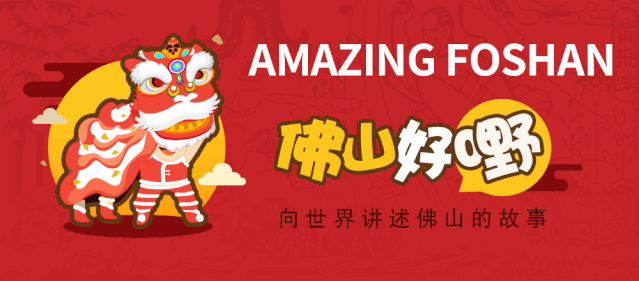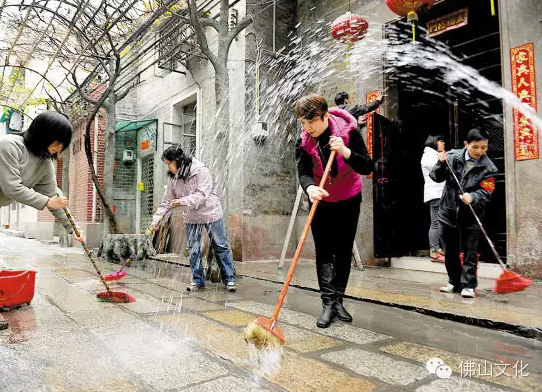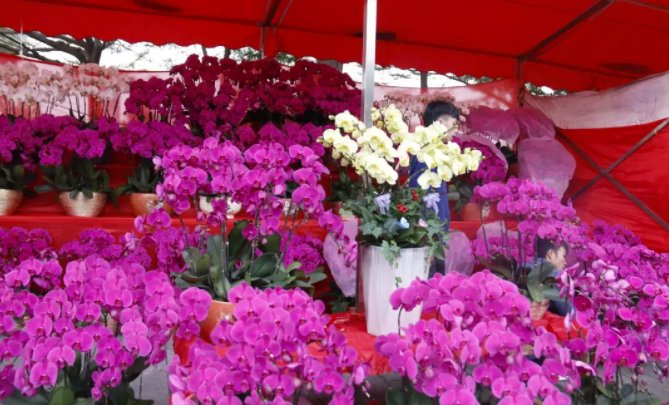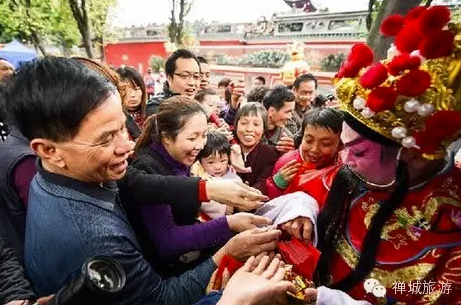
春节是中国人一年中最重要也最盛大的节日。本期我们就来介绍一下佛山的春节习俗。
In China, Spring Festival is viewed as the most important and grandest festival in a year. On this special occassion, many folk customs have been well preserved for years.
洗邋遢 Wash away the dirt
“年廿八,洗邋遢”是广东的传统习俗之一。“洗邋遢”其实是打扫卫生。到了这一天,大家会全家出动,把家里从头到尾打扫一遍,为的是把“厄运”“霉气”扫出门,把这年不好的东西扫除后,过新年时就可以享受簇新的环境,沐浴在吉祥的氛围中。

A saying goes in Guangdong Province - “people wash away the dirt on ninyabaat”(年廿八,洗邋遢)(“ninyabaat” refers to the 28th day of the twelfth lunar month). On the days before the new year celebration, local households like to give their home a thorough cleaning. It is culturally believed that by clearing away all the bad things in the past year, people would get a good headstart and gather up good luck for the coming year.
逛花市 Visit flower markets
逛花街俗称“行花街”,又称“游花市”“行大运”,其起源朝代已无可考究。逛花街寄托着人们对新年的祝福、寄愿,比如说在花街买红桃,是取谐音“鸿图”,寓示大展鸿图;买金桔,是取谐音“今吉”,寓示吉祥如意,大吉大利。在逛花街之时,也能看到许多人捧住新买的桃花、百合、菊花,喜庆之意挡都挡不住。

In Guangdong, flower market is one of the most festive events held before the Spring Festival. Strolling along a street with stalls that sell gorgeous blossoms is how people wish for the brand new year. For example, buying red peaches (红桃) signifies people’s aspirations for a grand prospect. (In Cantonese, “red peaches” and “grand prospect” resemble in pronunciation); buying kumquat (金桔) underlies a wish for good luck (In Cantonese, “kumquat” and “luck” resemble in pronunciation). An outburst of colors add up to a more vibrant new year - peach blossoms, lilies, chrysanthemums and a lot more.
接财神 Worship the God of Fortune
过大年怎么少得了接财神爷呢?民间传说正月初五是财神的生日,在初五接财神便能在未来的一年里“红红火火,恭喜发财!”。所以过了年初一,接下来最重要的活动就是接财神,在财神生日到来的前一天晚上,各家置办酒席,为财神贺辰。

As passed down in folklores and tales, the 15th day of the first lunar month is the birthday of the God of Fortune. Thus, this date has then been marked as the day of wealth and prosperity. It has become a common practice for people to prepare a banquet in the night before the date in celebration of his birth.
派利是 Send out Lishi (Red Envelope)
广东人的拜年语里必有一句“恭喜发财,利是逗来”。“利是”是粤语地区的普遍说法,指的是红包。在广东,红色的利是封象征着活力、快乐和好运。长辈派红包给未成年的晚辈,是表示把祝愿和好运带给他们。而且广东人派利是讲究派一对利是,代表夫妻双方的祝福。

In Guangdong, “Lishi” is a local nickname for “Hongbao”. At the Cantonese New Year greetings, people will send out Lishi to relatives and friends. Red envelopes stand for a mix of energy, happiness and good luck. Elders give Lishi to the young, wishing them all the best. In Guangdong, red envelopes are always handed out in pairs, as the blessings of a couple.
行通济 Walk across Tongji Bridge
正所谓“行通济,无闭翳。”作为在元宵节期间举行的游玩祈福活动,也意味着过年来到了尾声。每到元宵节,佛山家家户户都会扶老携幼,举着风车、摇着风铃、提着生菜由北到南走过通济桥,祈求来年平平安安、顺顺利利。受到疫情影响,如今已经改为线上行通济,人们可以通过网络小游戏重温这一传统习俗。

“Walk across Tongji Bridge and get rid of all the bad luck of the coming year!” On the Lantern Festival, walking across Tongji Bridge also marks the end of the Lunar New Year. Families in Foshan will walk across Tongji Bridge from north to south, holding windmills, ringing wind chimes and carrying lettuce, praying for peace and prosperity in the coming year. Due to the pandemic, all social gatherings are cancelled during the CNY. You can cross the Tongji Bridge online.
Author | Michelle, Lillian, Jersey
Revisor | Jersey